The power of steam cooks a classic snack in a whole new way!
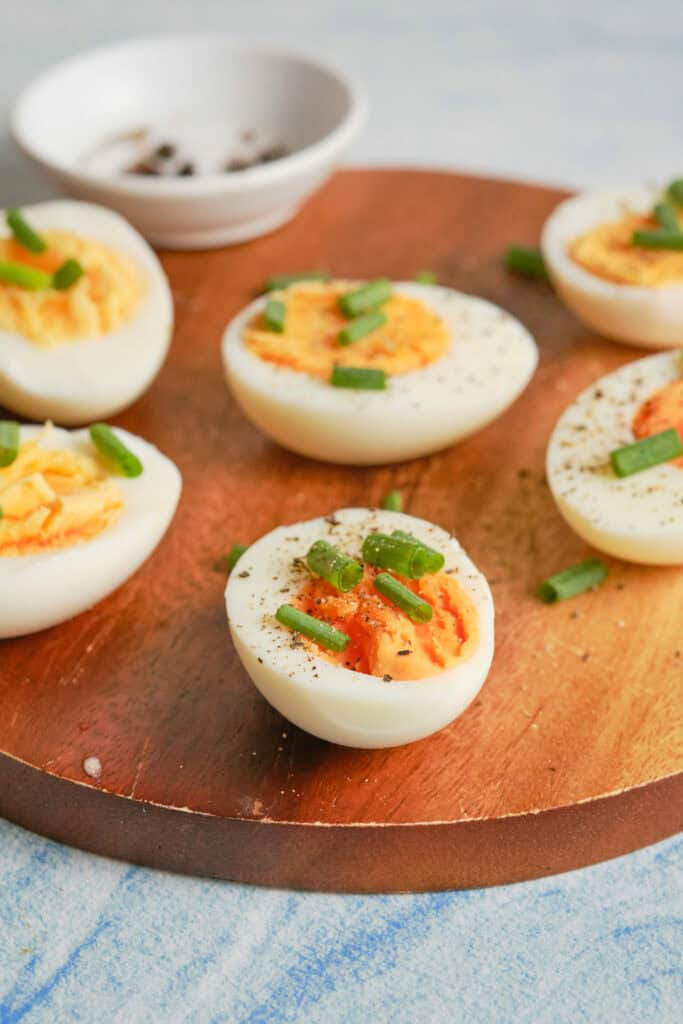
I have a confession to make: I’ve been steaming my eggs for years. Yes, really. Doing this for such a long time begs the question: Why haven’t I brought the recipe to the site before now? I can’t really answer that. Maybe it’s because I always thought of it as my little secret. Who would have thought to steam eggs? But it’s such a convenient life hack!
Steaming means no green around the yolk when you accidentally boil the eggs for too long. Steaming means an easier time peeling them since the steam helps loosen the membrane between the egg whites and the eggshell. Steaming means a softer, creamier set yolk and more tender egg whites. Steaming just seems to make the whole process easier and the results more delicious.
Once you have yourself some steamed, hard-boiled eggs, you have both a hearty snack option on hand and a convenient meal prep building block that goes great in salads, sandwiches, grain bowls, and more.
Are Steamed, Hard-Boiled Eggs Healthy?
Yep, steamed, hard-boiled eggs have all the same health benefits as regular hard-boiled eggs. They contain protein, B vitamins, vitamin D, and choline. They fill you up and take next to no time to prepare, making them a great, nutritious snack.
Here’s where steaming wins, however: Boiling eggs at a high temperature can result in the loss of vitamins and antioxidants. While this isn’t unusual (many foods lose nutrients when cooked a certain way), it might sway you toward steaming even more.
As a plus, eggs are also suitable for low-carb, keto, gluten-free, dairy-free, nut-free, Whole30, and Paleo diets, so you can enjoy them regardless of your dietary restrictions (except vegans, that is).
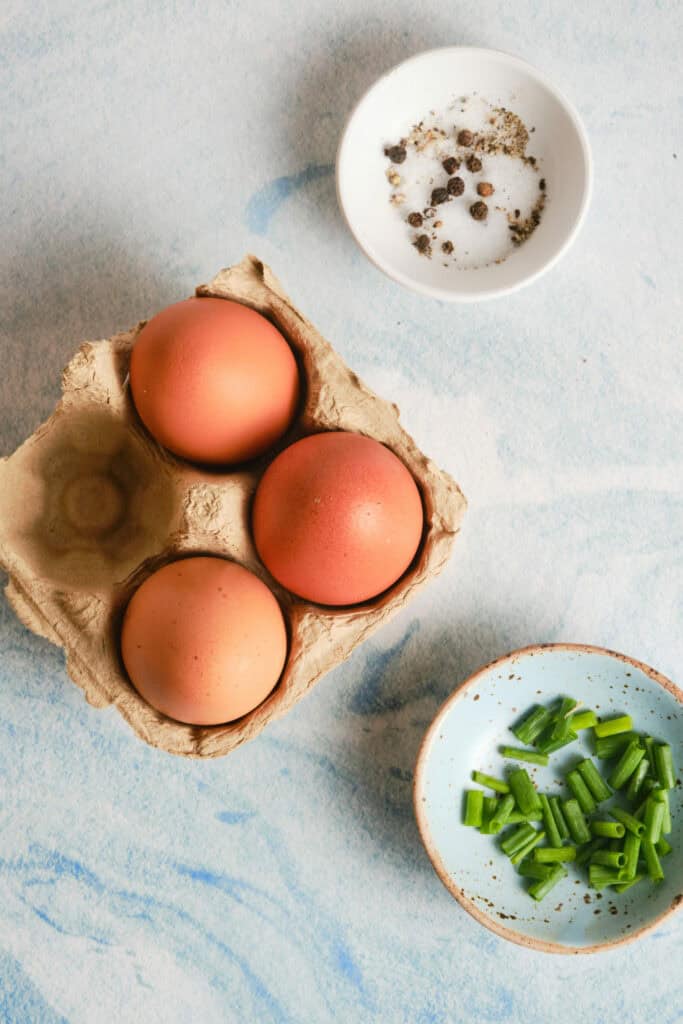
Getting The Yolk Just Right
No matter whether you’re boiling or steaming your eggs, timing is everything. And it all comes down to how you like your yolk. For hard-boiled eggs with fully set yolks, you’re going to want to steam them for around 15 minutes (how this recipe is written). But if you like more of a soft, jammy, or outright runny yolk, you’ll need to reduce your cooking time. Use the following chart as a cheat sheet based on your preferences:
| Doneness Level | Steaming Time |
|---|---|
| Soft-Boiled (runny yolk) | 5-6 minutes |
| Medium-Soft (partially set yolk) | 7-9 minutes |
| Medium (creamy yolk) | 11-13 minutes |
| Hard-Boiled (fully set yolk) | 14-16 minutes |
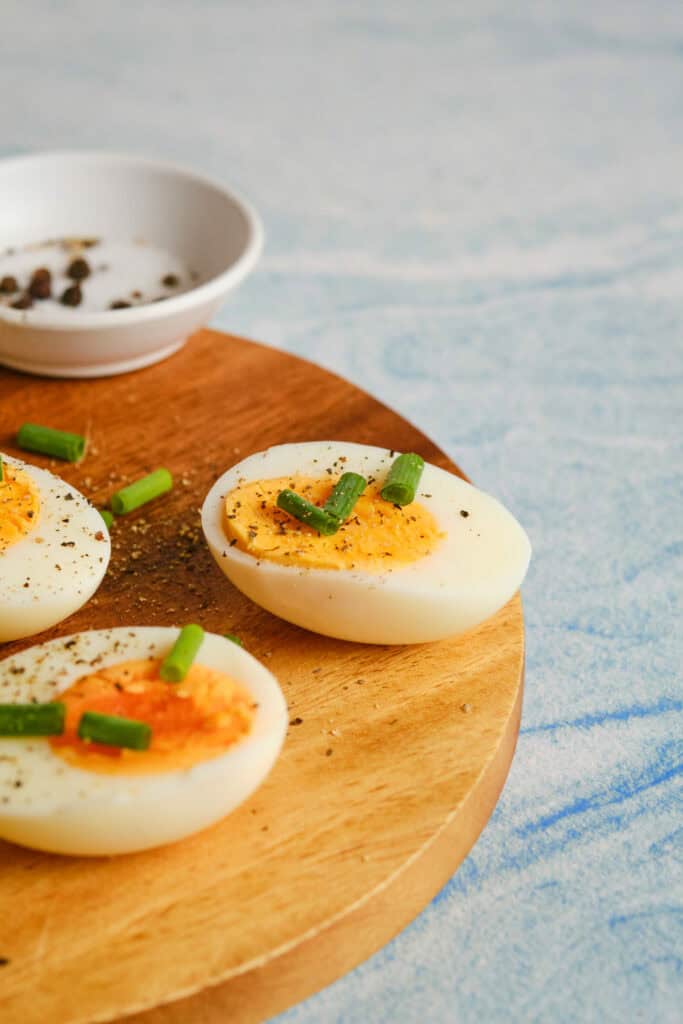
How To Make Ahead And Store
Once your eggs have cooled completely, you can store them unpeeled in the fridge for up to 1 week. If they’re peeled, they will only last 3 days. Peeled eggs should be stored in the interior of the fridge (not the door) where the temperature stays consistently cold. To cut down on condensation, you can put a paper towel in the container with the eggs.

Serving Suggestions
Now that you have a collection of steamed, hard-boiled eggs, what do you do with them? First, you can make Pickled Eggs. Or you can Make Deviled Eggs With A Healthy Twist in the form of Greek yogurt. To glam up your snack, try this recipe for Salt And Pepita Hard-Boiled Eggs. For a dish where the egg is no longer the star but still an important member of the team, try this Coconut Slow-Cooker Curry With Pumpkin And Eggs.
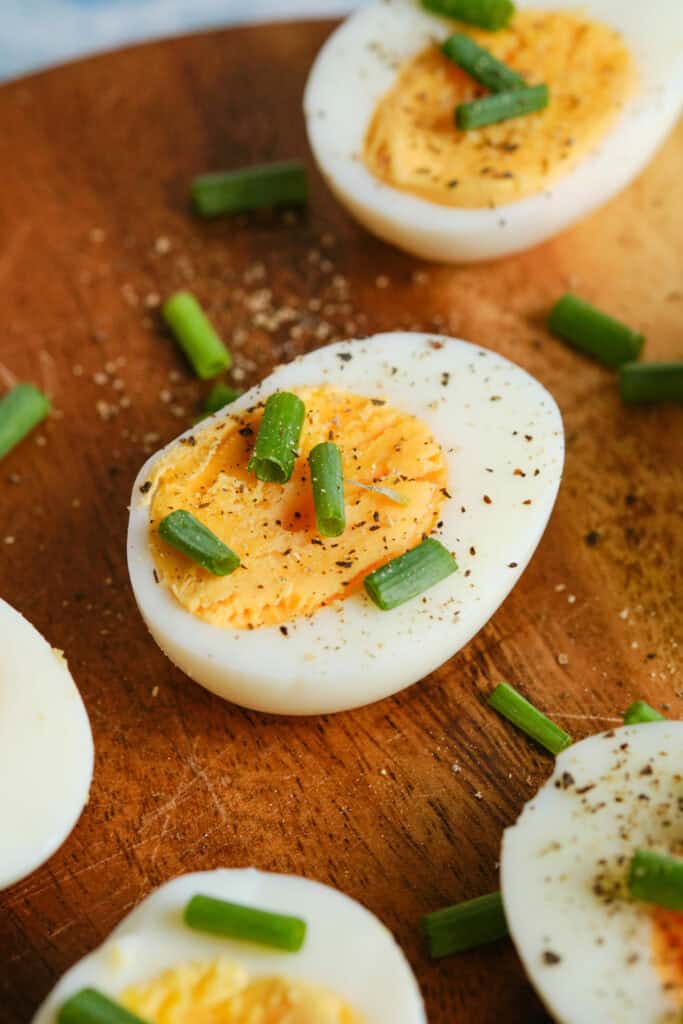
Recipe
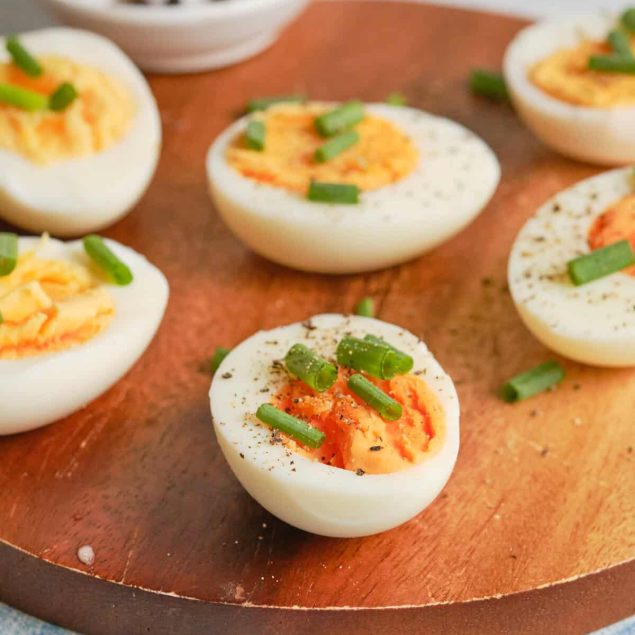
Ingredients
- 3 large eggs
- pinch of salt and pepper
- Chives chopped (for garnish)
Instructions
- Place a steamer insert inside a large pot with water and bring to a boil over high heat. Add the eggs to the steamer basket, cover, and cook for about 15 minutes for hard-boiled eggs.
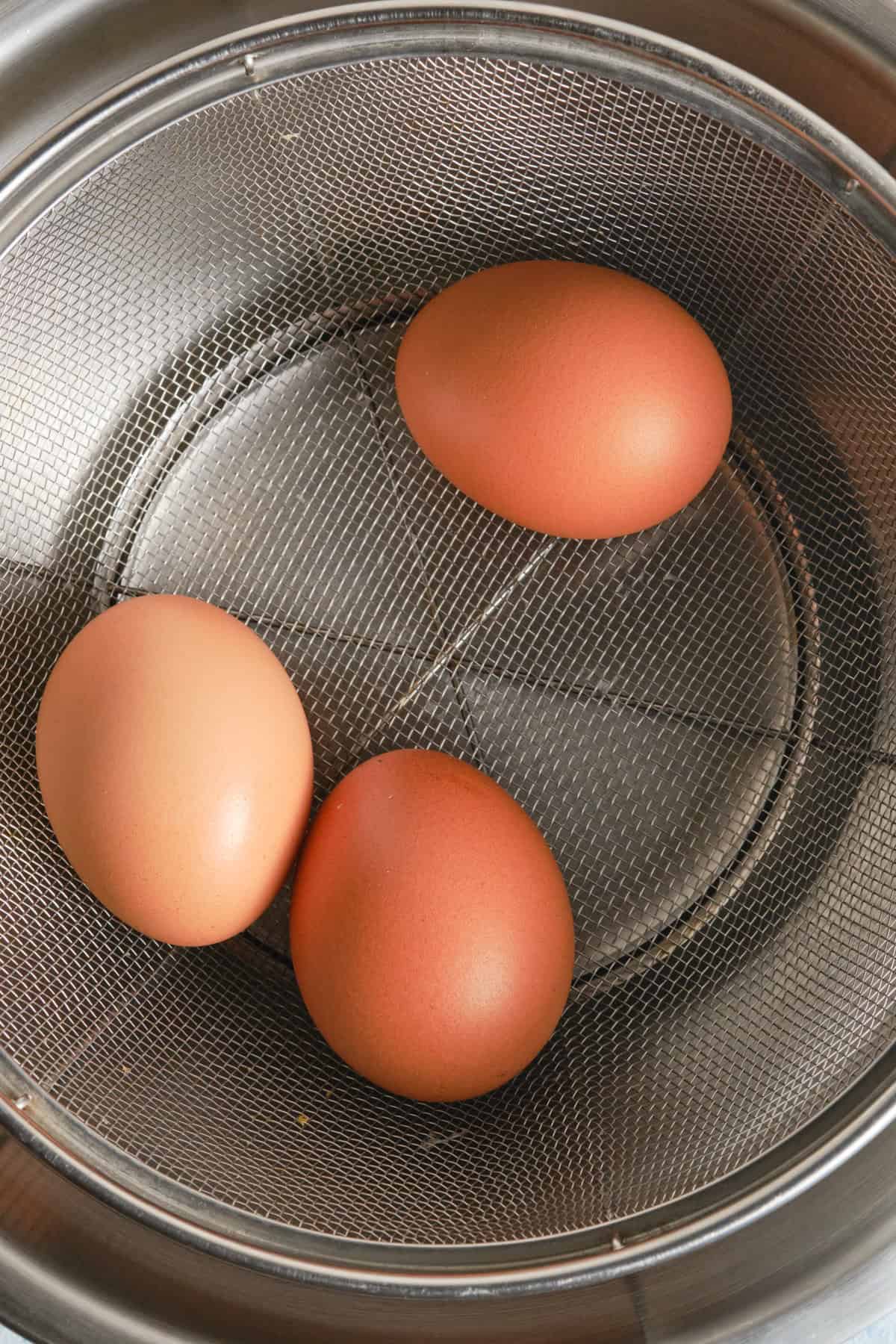
- While the eggs are being steamed, prepare a large bowl filled with ice cubes and water. Once the eggs are done, transfer them to the ice-water bath. Allow to cool for at least 10 minutes before peeling.
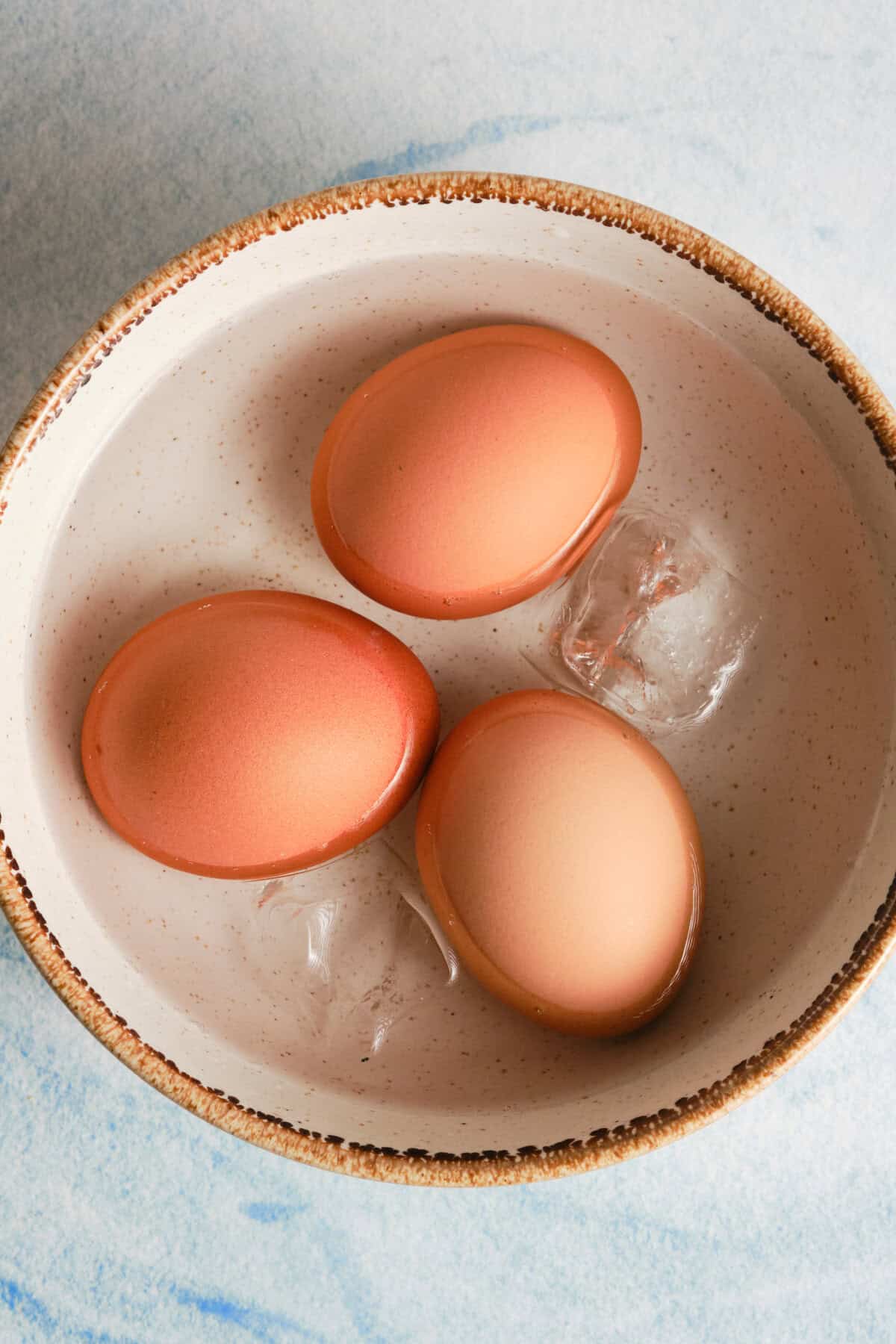
- Gently tap the eggs all over to crack the shell. Remove the shell with your fingers.
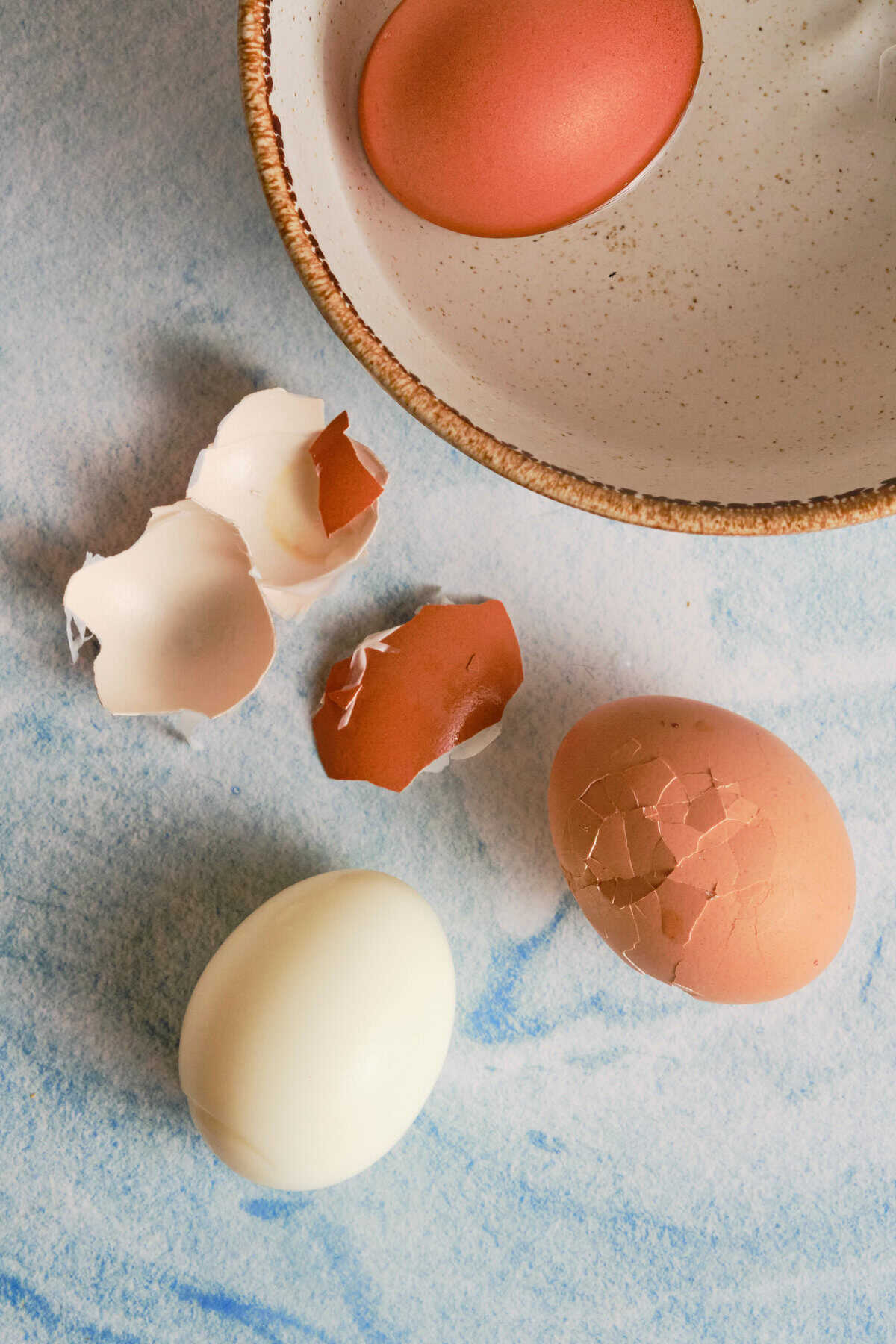
- Cut the steamed eggs in half and sprinkle with a pinch of salt and pepper. Garnish with chopped chives.
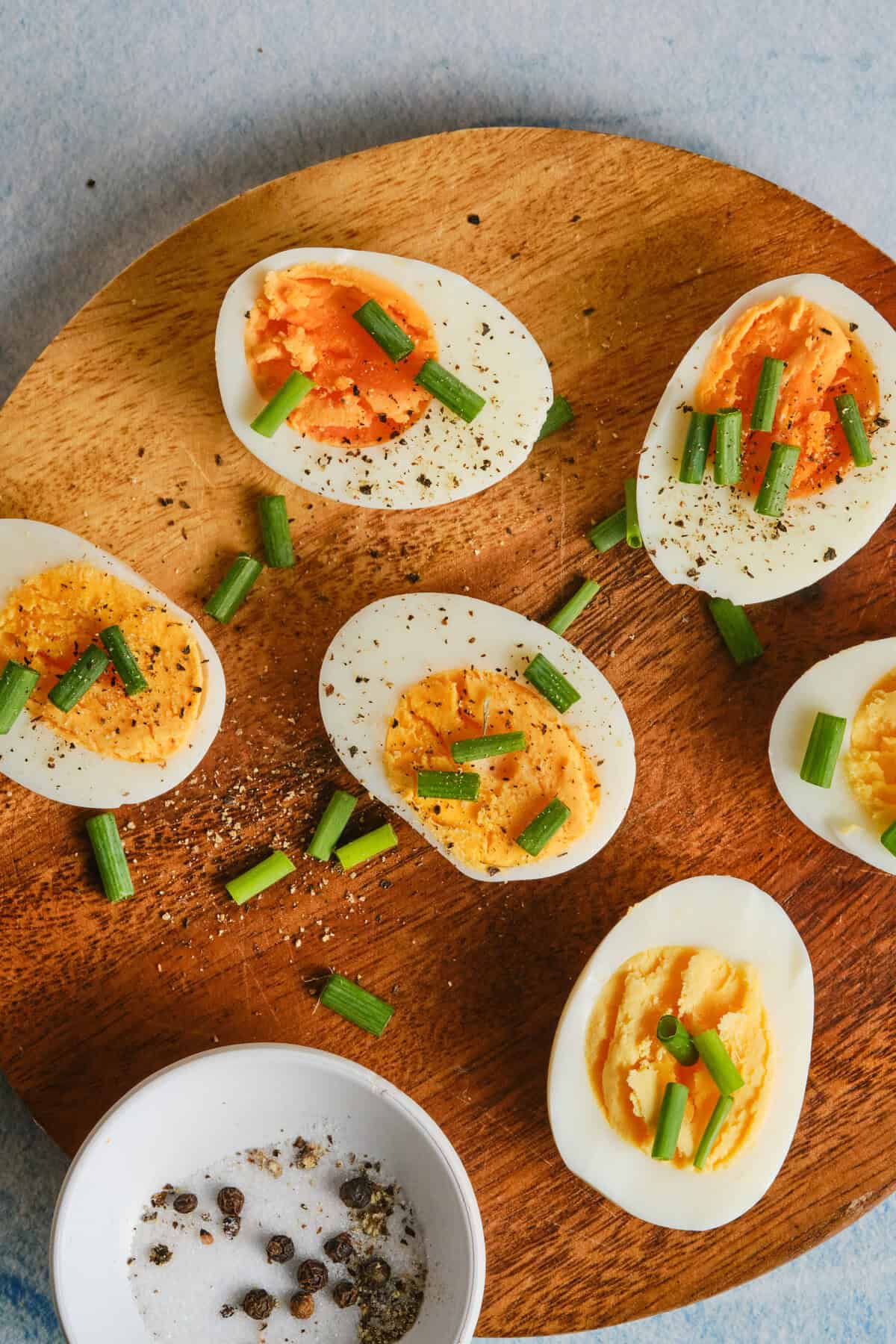
Nutrition Info:
Recipes written and produced on Food Faith Fitness are for informational purposes only.
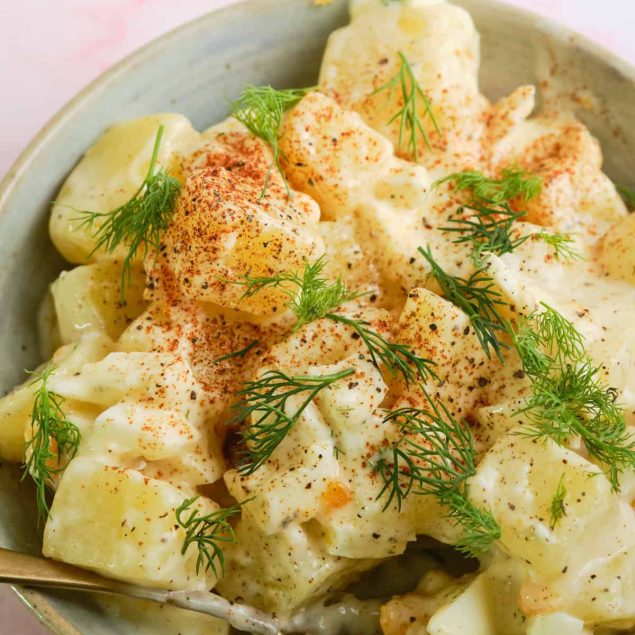
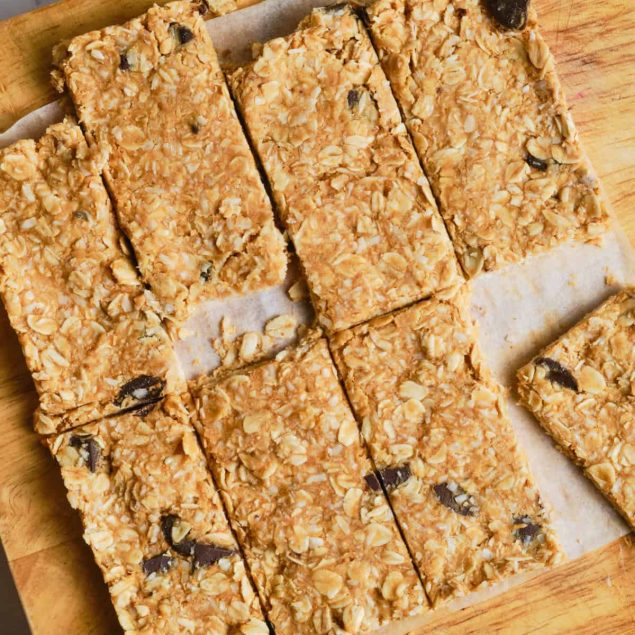
Leave a Comment